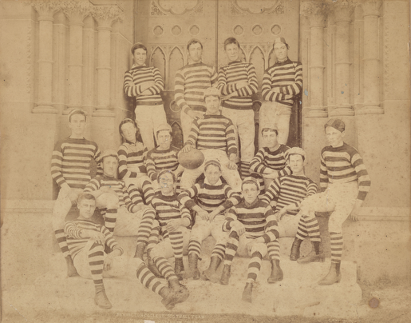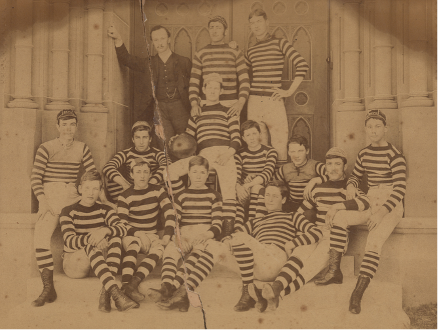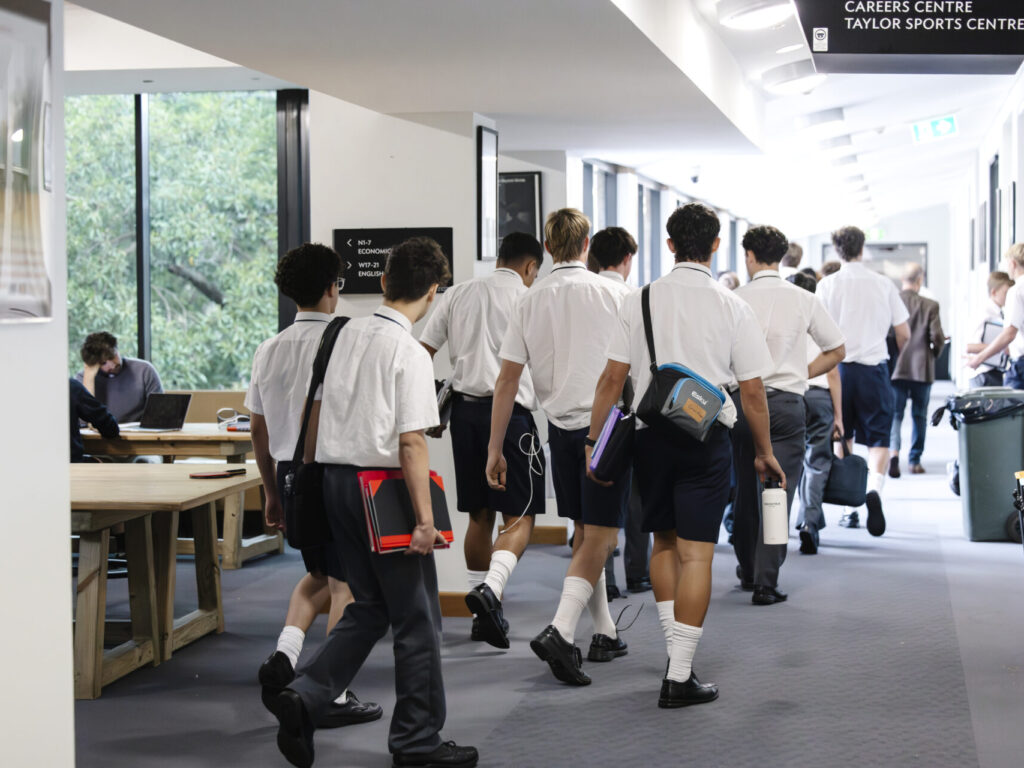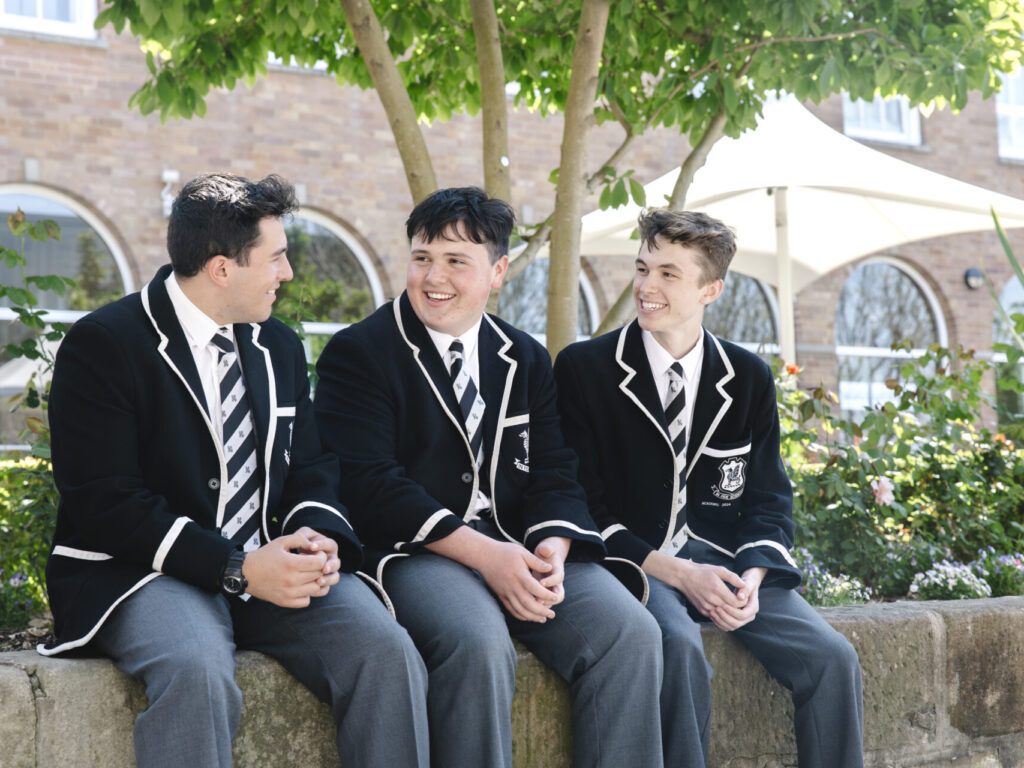From Tingha to Hong Kong – Australia’s first Anglo-Chinese solicitor
One of Newington’s early students made a name for himself as the colony’s first Chinese Australian lawyer, after arriving as a boarder at Newington from a small town on the NSW Northern Tablelands. Here is his story.

‘One of our best cricketers: bats with freedom; cuts very prettily; splendid fielder at cover-point.’ This is how Otto Kong Sing, the first Anglo-Chinese admitted as a solicitor, was described in the College magazine The Newingtonian in 1888. The following year he was named ‘one of the best rugby half-backs in the Colony’ in the Australian Town and Country Journal.
So how did this impressive athlete and academic come to study at Newington?
Otto Kong Sing (ON 1889) was one of six children born in Nundle, NSW, to a Chinese merchant father and an Australian mother. The family lived in New England, and Otto did his early education at Tingha Public School then Tamworth Grammar School, before he commenced as a boarder at Newington in 1885.
Otto involved himself in all aspects of College life. He joined the cadet corps and rifle shooting team, winning a £1 prize at the 1885 All Schools’ Carbine Match and a £2 prize two years later. As a member of the Literary and Debating Society, he was both engaging and entertaining.
He joined the athletics club and regularly placed in the 220-yard Flat Race. His athletic ability laid the foundation for his rugby skills, making the 2nd XV in 1885 before being promoted the following year to the 1st XV, aged only 14.
The Newingtonian in 1886 critiqued his rugby skills as:

Otto would remain in the 1sts for the rest of his schooling and received three Honour caps. In 1889 he was selected as the first student to hold the official title of Captain of Rugby. An extract from a poem published in The Newingtonian in 1887 also highlights his skills:
Next, our celebrated tackler, whom a man has seldom passed,
Is Kong Sing, this year a half-back, though he played full-back the last.
Though a dodger and a runner, yet by players he is known
By the fact that when one meets him he is certain to be thrown.

In tandem with his rugby successes, Otto branched out into cricket in 1887, starting the year in the 2nd XI and ending the year as a member of the 1st XI:

He was also one of the College’s cricket selectors, and in 1889 he was a member of the Combined Schools’ 1st XI team.
Otto’s profile was rising outside the College, with a feature article in a March 1889 edition of the Australian Town and Country Journal. Under the heading ‘An Anglo-Chinese Cricketer – Otto Kong Sing’, he was praised as ‘an enthusiastic cricketer… [and] in rugby he has the name of being one of the best half-backs in the colony.’
In June 1889 his future was assured when he passed the Law Matriculation Examination. The Newingtonian mourned his academic success, writing that ‘we fear this success is the prelude of our loss of one who has long been a tower of strength to us both in cricket and football.’ His sporting career was eulogised as being filled with ‘brilliant play and sound judgment’ and of being one of the best all-round athletes Newington ever had.
His post-school sporting life saw him return to Newington as an assistant cricket coach. He was also a member of Sydney University’s Undergraduates rugby team and in 1890 a member of the newly formed Sydney Football Club.

Otto was admitted as a solicitor at the NSW Supreme Court on 9 March 1895, reportedly becoming the earliest identified person of Chinese descent to be admitted as a solicitor is Australia. He entered into partnership with former rugby team-mate, William Sands (ON 1887), practising as Sands & Kong Sing, Solicitors. Otto moved to Hong Kong in the early 1900s where he established his own successful practice.
In February 1917, aged in his early 40s, following emergency throat surgery, Otto suffered a tragic cardiac arrest and died in the French Hospital, Hong Kong. He now lays at peace in the Happy Valley Cemetery. Eulogies to Otto were published in the Hong Kong papers, and he was lauded in Hong Kong’s Supreme Court as ‘a straight-forward and conscientious advocate and a most courteous man.’

Otto’s abilities resonated after his death, inspiring those who had the same educational beginnings. Amongst the speeches at the 1919 opening of new classrooms at Tingha Public School, reference was made to the three Kong Sing siblings who had ‘gone abroad and attained prominence, namely Miss Justine Kong Sing, a very successful miniature painter in England; her brother, Mr Otto Kong Sing had been a successful barrister in Hong Kong; while James was a successful inventor…the present day children have no excuse for not being successful.’



